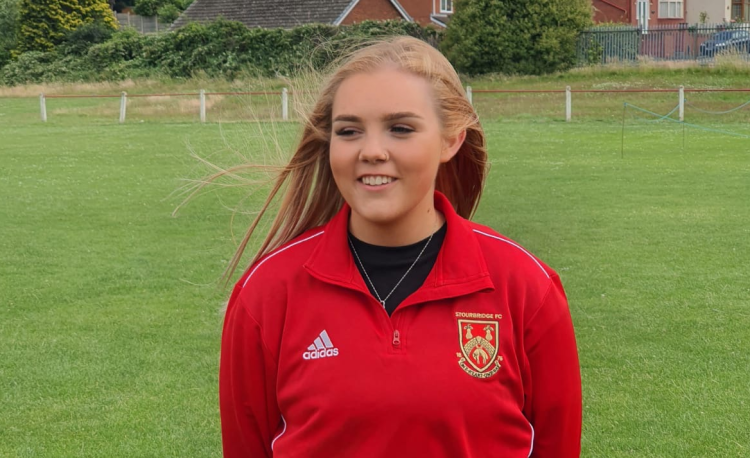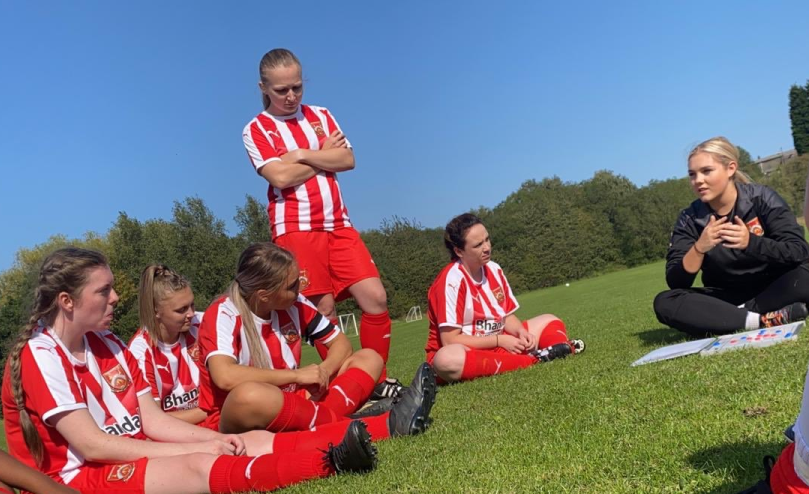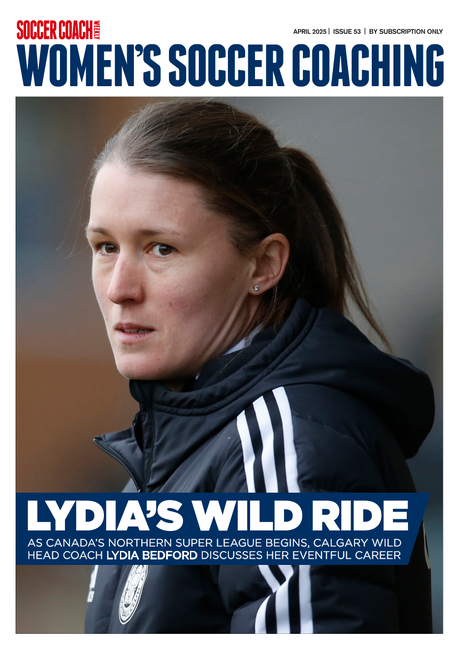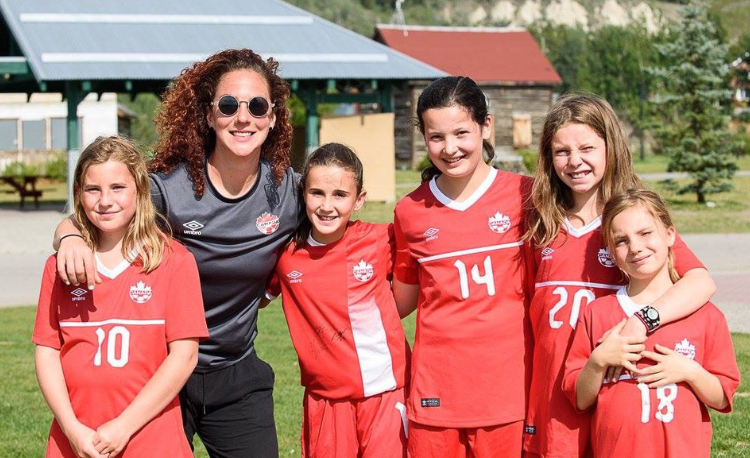How can I motivate myself as a coach?
We are good at spurring our players on to new heights. But what can we do if we lose our own drive? Elle Gough explores ways to reignite your passion.
In all aspects of life, the key to success is motivation.
Behind every individual who has reached the top, there is a level of motivation that has allowed them to get there.
As coaches, we are usually pretty good at motivating our players and others around us – but something that is often neglected is how we can motivate ourselves.
Just like our coaching journey, levels of motivation can go up and down, and peak and crash – being aware of this, and managing it, can be a great tool to reduce the lows.
This is an under-researched topic and a real challenge which is often brought up among the coaching workforce. How can we remain motivated to provide the best for our players and clubs?
Coaching can be extremely demanding and often takes up a large portion of our life, whether it’s planning and delivering sessions, communicating with parents, supporting players’ wellbeing or providing feedback.
"Motivation can peak and crash – managing it can be a great tool to reduce the lows..."
For some coaches, this is a voluntary role, on top of their full-time job, often out of hours – or sometimes even done in the small amounts of time they have between meetings.
To be able to navigate this challenging paradigm, and also have time for yourself (which is very important), a love for what you do is definitely required.
We are often told that we need to be motivated, work hard and stay passionate – but no-one ever talks about the reality and strategies that are needed to achieve and maintain these qualities.
We often link motivation to how much success we gain or experience we have, but this often washes over the foundations that are needed, such as declining social plans to attend training sessions, to plan for them, or to reflect afterwards.
For most of my career, I have been able to maintain a good level of motivation, especially while at university and studying a course that was coaching heavy.

Being in and around a coaching environment day-in, day-out, having conversations around practices and our players, and participating in constant reflection, allowed this consistent state of motivation.
However, it was when I left this environment and went into a full-time teaching job, while coaching part-time in the evenings, that my motivation started to fluctuate.
The love for the sport, the club and the players was there, but the short-term motivation after a long week or term at work was sometimes lacking.
The 2022-23 season was a real struggle for me. I attempted to set goals and do all of the strategies that are suggested online, but it was when I tried to do more research into this that I realised the lack of resources on this topic that is available to coaches.
Over the season, I tried many different strategies. But I found the best types of motivators were the informal ones, which I could do with other coaches within my environments, and those that were quick solutions that I could achieve on my way to training or whenever I had a spare minute.
Here are some of my own strategies I turn to when I’m in need of motivation:
Talk to people
I’ve found that conversations with other coaches around their experiences and environment can spark some excitement.
Sometimes what they are doing can inspire you and motivate you to create this in your own environment. Those little snippets of informal chat can be powerful tools.
Engaging in conversations with peers or mentors can provide a sense of connection and support, especially when sharing experiences, successes and challenges.
Interacting with others can allow us to gain new perspectives and insights and may provide innovative solutions to problems, spark creativity and reignite a passion for coaching.
Venture out into different sports
Different sports can be a source of inspiration when it comes to creating different environments, coaching styles and stealing small ideas.
I’ve recently started to learn to play golf. There are stark differences in coaching styles and environment, but conversations with the coaches there have been a great motivator for me in terms of how I provide feedback.
Talking about new developments in technology, and how golf uses this to improve technique, inspired me to see how I could use this in my own coaching.
Venture out into different sports
Seeing successful coaches in action, or hearing their stories, can serve as powerful motivators.
Learning from the experiences of others and understanding their journey can help reignite passion and determination when this is low.
"If we don’t want to be at sessions, our players often catch on pretty quickly..."
Watching coaching videos and listening to podcasts (the Women’s Soccer Coaching podcast archive can be found here >>) provide a convenient and accessible way for me to stay updated on the latest trends, techniques and best practices, especially when I’m going from session to session or driving to game days. It also helps bump motivation up before sessions.
Have fun
Sometimes when we experience a lack of motivation to deliver sessions, it can impact our players. If we turn up to sessions and don’t want to be there, our players often catch on pretty quickly.
When this happens, or if I’ve had a bad day at work, I try and have as much fun as I can with my players. This can quickly turn my motivation from a one to a 10.
Players still get lots of learning out of the session, but adding more elements of fun and silliness than usual can get some great social and psychological returns, for both players and coaches.
Reconnecting with purpose
Although it isn’t something we do often, and can make us feel guilty, taking time off to relax and recharge is super important.
This can allow us to reflect on our initial motivations for entering the coaching profession, something that often helps me reconnect my passion and purpose.
It usually motivates me to go back in with a fresh mindset to implement new ideas.
Related Files
Newsletter Sign Up
Newsletter Sign Up
Discover the simple way to become a more effective, more successful soccer coach
In a recent survey 89% of subscribers said Women's Soccer Coaching makes them more confident, 91% said Women's Soccer Coaching makes them a more effective coach and 93% said Women's Soccer Coaching makes them more inspired.
*includes 3 coaching manuals
Get Inspired
All the latest techniques and approaches
Women's Soccer Coaching offers proven and easy to use soccer drills, coaching sessions, practice plans, small-sided games, warm-ups, training tips and advice.
We've been at the cutting edge of soccer coaching since we launched Soccer Coach Weekly in 2007, creating resources for the grassroots youth coach, following best practice from around the world and insights from the professional game.







